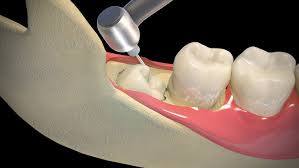
What exactly is a spine specialist? These are medical doctors (MDs) or osteopathic doctors (DOs) with advanced training. They focus on diagnosing and treating a wide range of spinal conditions.
Think of them as the detectives of back pain. They’ve gone through years of schooling, including residency and often a fellowship in spine surgery or related fields. This intense training equips them with the knowledge and skills to handle complex spinal issues.
Basically, they’re the go-to people when your back is really acting up.
Common Conditions Treated
Spine specialists deal with a whole spectrum of problems. This includes things like herniated discs, spinal stenosis, and scoliosis. They also treat injuries from accidents and age-related degeneration.
They’re equipped to handle everything from chronic pain to acute injuries. If it involves your spine, they’ve probably seen it.
Basically, if your back is causing you grief, a spine specialist can help figure out why.
Treatment Approaches
Spine specialists have a lot of tools in their toolbox. They might start with non-surgical options like physical therapy, injections, or medication. The goal is always to relieve pain and improve function.
If those don’t work, surgery might be an option. This could involve anything from minimally invasive procedures to more complex spinal fusions. The approach depends entirely on the specific condition and the patient’s overall health.
The best spine specialists work with you to create a treatment plan that fits your needs and goals. They’ll explain all the options and help you make informed decisions about your care.
The Chiropractor’s Approach To Spine Health
What Chiropractors Do
Chiropractors focus on the spine and musculoskeletal system. They use hands-on techniques. Their goal? To improve overall function.
Chiropractic care centers around the idea that the body can heal itself. Correcting spinal misalignments is key. They aim to restore balance.
They often consider lifestyle factors. This holistic approach helps in diagnosis and treatment. It’s about the whole person, not just the pain.
Techniques Used
Spinal manipulation is a common technique. Soft tissue therapy is also used. Exercise and lifestyle changes are often recommended.
Chiropractors use non-invasive methods. These techniques aim to realign the spine. This allows the body to heal naturally.
Other techniques include massage and mobilization. These help reduce muscle tension. They also improve joint mobility.
Conditions Addressed
Chiropractic care is often sought for back pain. Neck pain and headaches are also common. Joint pain is another area they address.
They address similar health concerns as spine specialists. This includes chronic pain and spine conditions. Chiropractic treatment aims for lasting recovery.
Chiropractors can help with sciatica. They also treat some types of sports injuries. It’s about restoring function and reducing pain.
Key Differences In Treatment Philosophy
Surgical vs. Non-Surgical Options
Spine specialists often consider surgical interventions when other treatments fail. Surgery might be needed for severe conditions. Think about things like spinal fusions or disc replacements.
Chiropractors, on the other hand, primarily use non-surgical methods. These include adjustments and manual therapy. They aim to correct alignment issues without surgery.
The choice depends on the severity and nature of the spinal problem.
Focus On Pain Management
Both spine specialists and chiropractors address pain. However, their approaches differ significantly. Spine specialists might use medications, injections, or nerve blocks for pain relief.
Chiropractors focus on reducing pain through spinal adjustments and other manual techniques. They aim to address the root cause of the pain, not just mask the symptoms.
It’s important to consider which approach aligns best with your preferences and the nature of your pain.
Long-Term Health Goals
Spine specialists often focus on restoring function and stability. Their goal is to improve long-term health through various interventions. This might include surgery or rehabilitation programs.
Chiropractors emphasize preventative care and overall wellness. They aim to maintain spinal health and prevent future problems. This involves regular adjustments and lifestyle advice.
Ultimately, the best approach depends on your individual needs and long-term health goals.
When To See A Spine Specialist
Signs You Need Medical Attention
Experiencing persistent back or neck pain? Don’t ignore it. See a spine specialist if pain lasts more than a few weeks. It could signal a more serious underlying issue.
Numbness, tingling, or weakness in your arms or legs are red flags. These symptoms often indicate nerve compression. Prompt evaluation is key.
Consider these warning signs:
- Severe pain after an injury.
- Loss of bowel or bladder control.
- Pain that doesn’t improve with basic care.
Types Of Conditions Requiring Surgery
Certain spinal conditions often need surgical intervention. These include severe spinal stenosis and herniated discs. Spine specialists can assess and recommend the best course of action.
Scoliosis, especially in adults, might require surgery to correct spinal curvature. Instability in the spine, like spondylolisthesis, can also necessitate surgical stabilization.
If non-surgical treatments fail to provide relief, surgery might be the next step. A spine specialist can determine if you’re a candidate.
Referral Process
Typically, you’ll start with your primary care physician. They can assess your symptoms and provide an initial diagnosis. If needed, they’ll refer you to a spine specialist.
Sometimes, you can directly contact a spine center or specialist. Check your insurance policy for referral requirements. It’s always good to be informed.
Don’t hesitate to seek a second opinion. It’s your right to ensure you’re getting the best possible care.
When To Consult A Chiropractor
Signs That Chiropractic Care May Help
Think about seeing a chiropractor if you’re dealing with persistent muscle soreness or stiffness. Maybe you’ve got a limited range of motion that’s just not getting better. Or perhaps you’re experiencing frequent headaches, especially if they seem to originate from your neck.
Chiropractic care can be a solid option for those nagging aches and pains. It’s worth exploring if you’re looking for a non-invasive approach to managing discomfort. Consider it when other methods haven’t quite hit the mark.
It’s all about finding what works for your body and your specific needs. Don’t hesitate to explore different avenues to get back to feeling your best.
Benefits Of Non-Invasive Treatments
Non-invasive treatments, like those offered by a chiropractor, often mean less downtime. You’re typically back to your regular routine much faster than with surgical options. Plus, there’s a lower risk of complications.
These treatments focus on helping your body heal itself. They aim to restore function and reduce pain without major interventions. It’s a more natural approach to wellness.
Chiropractic adjustments, massage therapy, and exercise programs can all play a role. They work together to support your body’s innate healing abilities.
Preventative Care Strategies
Chiropractors can help you develop strategies to prevent future problems. This might include advice on posture, ergonomics, and exercise. It’s about taking a proactive approach to your health.
Regular check-ups with a chiropractor can identify potential issues early on. Addressing these problems before they become severe can save you pain and trouble down the road. Think of it as maintenance for your body.
Here are some preventative strategies:
- Proper lifting techniques
- Maintaining a healthy weight
- Regular stretching and exercise
Collaboration Between Spine Specialists And Chiropractors
Referral Practices
Sometimes, the best care comes from different specialists working together. A spine specialist might send you to a chiropractor, or vice versa. It’s all about getting you the right treatment.
This referral process helps make sure you get a well-rounded approach to your back or neck problem. It’s not unusual for a spine doctor to recommend a chiropractor, or the other way around. This way, patients can benefit from a range of healing options.
Ultimately, the goal is to ensure you receive the most appropriate and effective care for your specific condition.
Integrated Treatment Plans
Think of it as a team effort. Spine specialists and chiropractors can create treatment plans together. This might mean combining medicine or surgery with chiropractic adjustments.
This integrated approach can lead to better results. It addresses different aspects of your condition at the same time.
By combining their skills, these professionals aim to provide thorough care and recovery, ensuring all bases are covered for the patient’s well-being.
Patient Outcomes
When spine specialists and chiropractors work together, patients often see better results. This teamwork can lead to less pain and better movement.
Collaboration means a more complete approach to your health. It’s about finding what works best for you.
Ultimately, the goal is to improve your quality of life and get you back to doing the things you enjoy.
Insurance Coverage And Costs
Understanding Insurance Policies
Navigating insurance policies can feel like a maze. Different plans have different rules. Knowing your coverage is key.
It’s important to check if a spine specialist or chiropractor is in your network. Out-of-network care often means higher costs. Pre-authorization might be needed for certain treatments.
Always contact your insurance provider directly. They can give you the most accurate information about your specific plan.
Cost Comparisons
Treatment costs vary between spine specialists and chiropractors. Spine surgery, if needed, can be a big expense. Chiropractic adjustments are usually less costly per session.
Consider the total cost of care, not just the initial price. A spine specialist might offer a more definitive solution, potentially saving money in the long run. Insurance policies often dictate what’s covered.
Here’s a simple cost comparison:
| Treatment | Average Cost | |
| Chiropractic Adjustment | $30 – $200 | |
| Spine Surgery | $20,000 – $150,000 | |
| Physical Therapy | $75 – $150 |
Financial Considerations For Treatment
Think about your budget and payment options. Many providers offer payment plans. Some may have discounts for paying upfront.
Don’t let cost be the only factor in your decision. Your health is the priority. Discuss all options with your doctor or chiropractor.
Consider the long-term financial impact of untreated pain. Investing in the right care can improve your quality of life.
Final Thoughts
In the end, deciding whether to see a spine specialist or a chiropractor really comes down to your specific needs and what feels right for you. If you’re dealing with serious issues that might need surgery or medication, a spine doctor is probably the way to go. But if you’re looking for a more hands-on, natural approach to managing pain, a chiropractor might be your best bet. Both types of professionals aim to help you feel better, so think about what kind of treatment you’re comfortable with. No matter who you choose, the goal is to find relief and get back to living your life.



